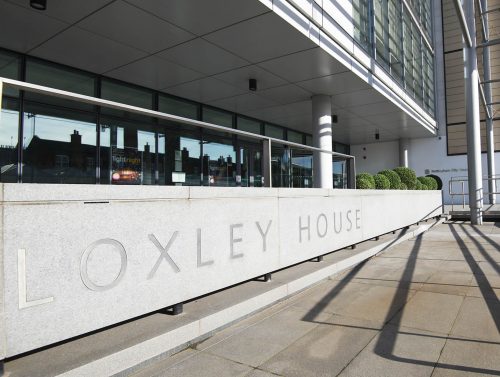City Council at risk of bankruptcy as £64m black hole uncovered

Nottingham City Council is at risk of having to declare itself bankrupt, according to a leaked report.
The report, non-statutory review led by Max Caller focuses on issues identified in a recent Public Interest Report on the council’s governance of Robin Hood Energy, the not-for-profit company it set up to tackle fuel poverty in the city.
The report has not yet been formally published and is currently with the Local Government Secretary for consideration.
It says the under-fire Council will only escape bankruptcy if it receives a Government bailout, according to Nottinghamshire Live.
If it doesn’t, a Section 114 notice would be issued meaning the Council can’t set a balanced budget. In this scenario, all non-essential spending would be suspended which could lead to hundreds of jobs being axed.
A review of Nottingham City Council was ordered following the collapse of Robin Hood Energy earlier this year.
The damning report outlines several findings that will dismay council leaders, including: the Government being able to legally limit how much the council is allowed to borrow; the council would have submit a recovery plan by next month to plug a financial black hole of between £52m and £64m by the 2023 financial year; the council is set to lose £38m from the failed Robin Hood Energy project; and the council must conduct an in-depth review of all its companies to see if their future status.
The leaked report outlines that “a fundamental culture shift” is required in the way the council is run, but that repeated warnings over its financial malaise have been “ignored” for four years.
Nottinghamshire Live also says the report outlines that Nottingham City Council has the second lowest cash reserves of all the Core cities.
Despite this, the report’s author says it has been “impressed” with the way new Labour leadership at the council.
The report said: “Throughout our engagement with the council the team has been impressed by the commitment of the leader and his executive colleagues to bringing sound management and leadership back to the council and taking the decisions necessary to stabilise the position.
“The team concluded that, with support, it was possible to proceed to a position where the council could take their decisions and be held to account for their delivery.”
However, it is scathing on the running of the council’s wholly-owned companies, says Nottinghamshire Live, including Nottingham Ice Centre, Enviroenergy and Thomas Bow Asphalt. The council has at least a 50% share in nine such companies – six are 100% owned by it.
The report adds: “There either never was or no longer is a rationale for the portfolio of companies under the council umbrella.
“Some, for example, Nottingham City Transport or Futures, can only be operated in this format if the council wishes to be involved in delivery.
“Many of the others are mainstream council activity and urgent consideration should be given to bringing these back in house sooner rather than later.
“Whatever happens, the council cannot continue to underwrite trading or provide loan capital in the short term and will need to realise returns and seek repayments where possible.”
The report also outlines fears over spending decisions made by Nottingham City Council that go back four years.
It says: “There is no strategy setting out how the council will address the financial challenge going forward. There also appears to be a disconnect between the outlook and the decisions the council makes regarding spending, with more and more commitments and risk being added to an already challenging financial position.
“Four years ago, Nottingham started to lose control of their budget. They were advised that they needed to address these issues. Both managerial and political leadership failed to heed these warnings and take the necessary action.”
Concluding, it says: “The council approach to companies, its capital programme and revenue budget has layered risk upon risk and the consequences of Covid-19 on the budget has pushed it into the financial position of having a massive ongoing budget gap with depleted reserves.
“With a large budget gap to bridge, limited reserves, funding gaps in the capital programme and unquantified risks the options available to the council to respond to different levels of support that might be provided by MHCLG are limited.”
Responding, Nottingham City Council says it has “fully accepted” the findings of the review.
Leader of the council, Councillor David Mellen, said: “We have been working closely with Max Caller and his team over the last few weeks as they have carried out the review. We fully accept the findings and remain committed to making the improvements needed to ensure we are the best we possibly can be as a council.
“The review clearly raises serious issues around financial management and governance that need to be addressed urgently.
“It highlights that we have been slow to act on warnings about the risk of relying on one-off savings and income through commercialisation and that we should have been managing budgets on a longer term basis to reduce core expenditure and transform services.
“The council’s capital expenditure and high levels of debt compared to other cities is also flagged up as a major concern with the cost of borrowing restricting our flexibility on day-to-day spending.”
Mel Barrett, the council’s chief executive who joined the authority in September, said: “The review team said it was impressed with the determination of the council’s leadership to stabilise the current situation and take the necessary decisions to bring about improvement.
“We hope and believe this demonstrates confidence that we can deliver the changes needed, building on the work we have already begun following the publication of the Public Interest Report in the summer.”









